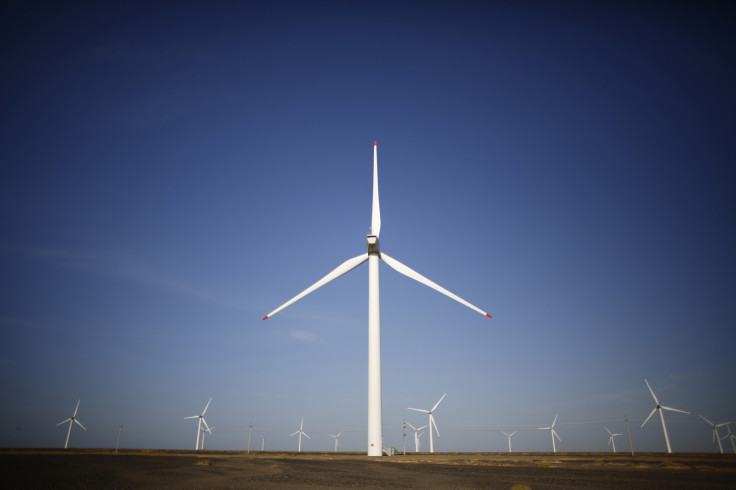Nigeria receives £10 million to fund sustainable climate infrastructure
A £10 million investment has been announced by a UK-backed funding program to create a Risk Sharing Backdrop Facility for Nigerian sustainable climate infrastructure.

As the climate crisis takes centre stage the fight for saving the planet has intensified, especially in the global south where underdeveloped nations like Nigeria are bearing the brunt of global warming. Last week, Nigeria made some progress in developing a climate infrastructure with the help of UK-backed FSD Africa Investments.
This comes at a time when the UK and Kenya have joined hands to tackle climate change issues.
FSD Africa Investments or FSDAi, a regional program funded by Britain, announced on August 2 that £10 million would be invested in developing an innovative risk-sharing facility to support sustainable climate infrastructure in Nigeria. This will be done in partnership with InfraCredit, a local currency guarantor which supports the credit quality of finance creditworthy infrastructure assets in Nigeria.
Started in 2017, InfraCredit has been well-recognised in Nigeria for supporting infrastructure projects in logistics, transportation, power, telecommunications etc. It ensures bond issuances between 11 companies spanning all the major infrastructure sectors in Nigeria. So far, it has written $315 million of guarantees since its inception in 2017.
The FSDAi, on the other hand, is an investing arm of FSD Africa backed by UK International Development. It has regional programs spanning 30 countries in the African continent with a base in Kenya. Its goal is to use finance to better Africa's future.
With a capital base of $131 million, the FSDAi has backed high-risk capital innovations and deployed it to make sustainable economic growth a possibility in the region, by addressing financial market failures. In the past, it has made investment feasible in off-grid energy and e-mobility sectors in the African continent.
Keeping the objective of accelerating finance in Africa's green economic growth, the FSDAi and its shareholders including the UK's Foreign, Commonwealth & Development Office (FCDO) and FSD Africa have decided to invest in building a sustainable climate infrastructure in Nigeria.
Risk Sharing Backstop Facility to attract bonds for sustainable climate infrastructure
An official statement from the FCDO underlined the nature of the investment, which, for the first time, seeks to unlock the potential of local currency in the funding of sustainable climate infrastructure in Nigeria. It's a first of its kind Risk Sharing Backstop Facility, or RSBF, that will mobilise local institutes, making them invest in climate infrastructure utilising bonds.
Through this process, the low credit enhancement problems in Nigeria could be addressed. Through the bonds, institutes can invest in viable early-stage sustainable climate infrastructure projects which are termed "green-field climate-aligned infrastructure projects".
This is part of the plan to support green economic transitions in African countries, including Nigeria, enabling nations on the continent to fulfil climate goals.
The plan works by increasing the accessibility of funds to scale up sustainable climate infrastructure projects that in turn will accelerate the social economic development of the said country.
As part of the investment plan, the RSBF will start with some funding from FSDAi and then gradually raise funding from other players. It has a target of a $50 million capital base. This falls in line with FSD Africa's vision of tackling obstacles by developing capital markets.
Britain's longstanding commitment to the Nigerian clean energy transition
Speaking about the sustainable climate infrastructure investment in Nigeria, UK Foreign Secretary, James Cleverly, stressed on Britain's commitment towards the clean energy transition of Nigeria.
The Foreign Secretary highlighted successful investments in the past like the British International Investment (BII) Private Infrastructure Development Group (PIDG). Cleverly evoked Britain's long-standing leadership in mobilising sustainable climate infrastructure in Nigeria and hoping that InfraCredit will help in attracting private sector investors.
Derisking financial solution for sustainable climate infrastructure
The Chief Investment Officer of FSD Africa Anne-Marie Chidzero highlighted how the FSDAI-InfraCredit partnership will derisk financial solutions and help get short-term and long-term local investments for sustainable climate infrastructure.
These climate infrastructure projects are often deemed unbankable by investors as Africa struggles to mobilise capital.
InfraCredit's Chief Executive Officer Chinua Azubike said the partnership will provide the necessary financial support to underfinanced projects which is crucial to realise their full potential.
Azubike further emphasised how smart use of catalytic capital can attract more private investors especially local intermediaries to invest in sustainable climate infrastructure in Nigeria.
This will help Nigeria to tackle growing environmental challenges including social inequality and unstable energy mix, said Chinua Azubike.
© Copyright IBTimes 2025. All rights reserved.






















